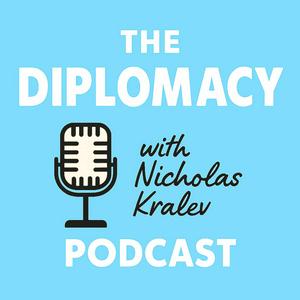Guest: Marc Grossman, former U.S. undersecretary of state for political affairs and ambassador to Turkey
The world looks very different at the end of 2025 compared to the beginning of the year. How did diplomacy contribute to that difference, and what were the major diplomatic successes and failures?
On this episode of “The Diplomacy Podcast,” we discuss the Trump administration’s diplomacy, its highs and lows, and their impact on the world. My guest is Marc Grossman, former U.S. undersecretary of state for political affairs, assistant secretary for European affairs, director-general of the Foreign Service and ambassador to Turkey. He spent 32 years in the Foreign Service.
Having served as the State Department’s third-ranking official under Secretary of State Colin Powell, Grossman talks about what he learned during their daily 5 p.m. meetings. He also discusses the recent loss of expertise in the department, as a result of mass firings.
As always, my guest’s opinions don’t necessarily represent my own views.
Watch or listen to the episode above, or on one of these platforms: YouTube, Spotify, Apple Podcasts.
This is a public episode. If you would like to discuss this with other subscribers or get access to bonus episodes, visit nicholaskralev.substack.com


